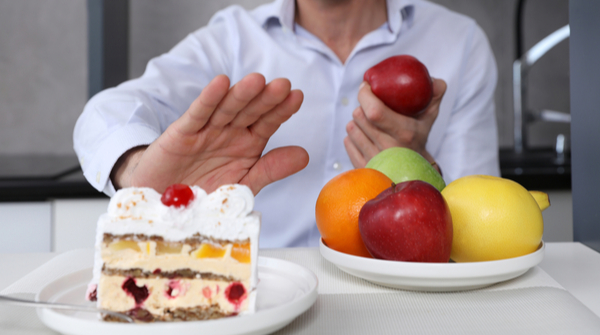Type 2 diabetes is a metabolic condition that keeps your body from using insulin the way it should. Moreover, high blood sugar levels for a long time can cause other complications like heart stroke, nerve damage, kidney diseases, etc. Read on to learn about the prevention of type 2 diabetes.
With the increasing rate of diabetes amongst people, it is even more important to take preventive measures. Since it is a lifestyle disease, a few changes in your routine can help you keep your blood sugar levels under control.
Symptoms of high blood glucose levels:
- Frequent urge to urinate (Polyuria)
- Excessive thirst (Polydipsia)
- Unexplained weight loss
- Blurring of vision
- Chronic fatigue
- Poor wound healing
What is Happening to Your Body in Type 2 Diabetes?
After you eat, digestion breaks down the consumed food into glucose. Glucose enters the bloodstream and travels to the cells to be utilized as energy.
Glucose circulating in the blood requires the hormone insulin to enter cells to be converted into energy. Insulin is made in the pancreas and is released into the bloodstream in response to the presence of glucose in the blood. Think of insulin as a key. When insulin reaches a cell, it attaches to the cell wall. This signals the cell to create an opening that allows glucose to enter the cell.
If an individual has type 2 diabetes, the cells do not respond to insulin hormone as expected. As a result, there is a reduction in the amount of glucose that moves inside the cells and an increase outside the cells. This is what endocrinologists refer to as hyperglycemia or high blood glucose levels.
What is insulin resistance? It is a state which causes secreted insulin in the body to produce an inadequate response from the fat, muscle, and liver cells where insulin uptake is required.
In type 2 diabetes, the cells are starved for energy and this makes the individual tired and fatigued all the time. Type 2 diabetes requires controlling the blood glucose; otherwise, the blood vessels may become damaged. Early Prevention of Type 2 Diabetes is possible if you understand its effects on your body, and work towards it accordingly.
Understand the Factors Responsible for Type 2 Diabetes.
The urbanization of the Indian lifestyle is the leading cause of diabetes due to increasing obesity, insulin resistance, and associated metabolic causes. Heredity is also one of the primary concerns of diabetes. If a parent has type 2 diabetes, the child has a 15% chance of developing the same.
What are the diagnostic criteria for diabetes?
- HbA1C: The HbA1C above 6.5% indicates diabetes. Its test is performed in the laboratory using a method that is NGSP certified and standardized to the Diabetes Control and Complications Trial (DCCT).
- Fasting Plasma Glucose: Fasting is when no calories are consumed for at least 8 hours. Fasting Plasma Glucose levels should be greater than 126 mg/dl to indicate diabetes.
- OGTT: Oral Glucose Tolerance Test above 200 mg/dl indicates diabetes. The test is done using oral glucose load of 75grams dissolved in water.
Diabetes can be treated and managed. It can be prevented if one is aware of the causative factors like diet, stress, and genetics. Moreover, preventive health checks can help diagnose early symptoms and pre-diabetes.
Screening is a must for diabetes, especially if your:
- age is above 30 years
- BMI is above 23
- the Waist to Hip Ratio is above 90 cm in men & 85 cm in women
- lifestyle is sedentary
Note: Women with a history of gestational diabetes should have lifelong screening for the development of diabetes at least every 3 years.
Prevention of Type 2 Diabetes
Diet

A diet rich in carbohydrates and fat is not suggested for adults with a sedentary lifestyle. It is best that after the age of 25 years, one is conscious of their meals.
A fiber-rich, low salt, and reduced-fat meal is best to keep diabetes at bay. There are so many food items that work in permutations and combinations with your meals and help keep insulin spikes within control.
It is wise to consult nutritionists and dietitians to plan your diet. A low glycemic index, antioxidant-rich meal needs expert counseling. Hence meeting an expert is sensible rather than doing it yourself.
Exercise

A good workout plan obviously helps burn calories and prevent the extra build-up of fat. A good muscle tone allows good metabolism. Moreover, exercises help activate insulin receptors in cells that allow a steady flow of glucose inside the cells with insulin. Exercising every day is the endocrinologist’s advice to prevent diabetes.
45 minutes of cardio activity which can be brisk walking, jogging, cycling, or swimming are recommended workouts. Furthermore, recreational sports like playing tennis or cricket are some of the fun activities to do and engaging in exercise.
Managing stress

Stress is an inward response to an unpleasant situation. It can cause you alcohol and drug addiction as well. Your mind responds to an awkward event with thoughts that release stress hormones. Constant and frequent hormone fluctuations will actually lead to diabetes.
This is why It is important to do activities that curb stress. Yoga and meditation are holistic ways of calming the body and mind. Focused breathing improves metabolism and helps keep various conditions at bay. Alternative healing modalities like tai chi, reiki, theta healing, music therapy, and more can be explored to focus the mind positively and be in sync with the natural state of the body.
Read More: What is Prediabetes? Prevent Type 2 Diabetes Now!
Although we explored that diabetes is predisposed due to hidden environmental and genetic factors, lifestyle changes are required to delay diabetes onset. Simple measures like regular screening, a healthy diet, exercise, and stress management are preliminary prevention techniques to preventing type 2 diabetes.
Connect with BeatO health coaches to maintain your blood sugar levels.





